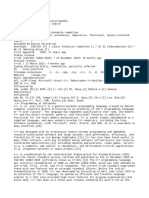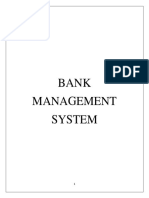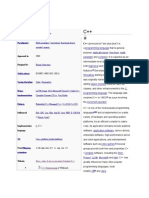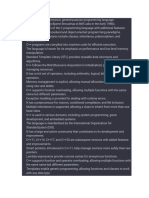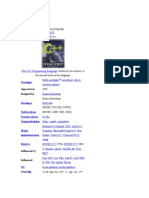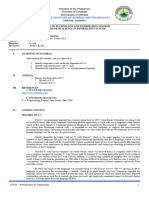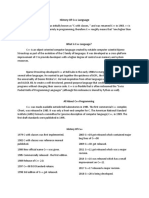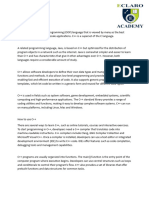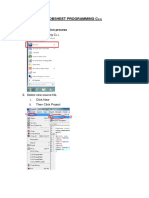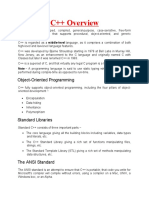0% found this document useful (0 votes)
10 views2 pagesC++ Summary
C++ is a high-level, general-purpose programming language created by Bjarne Stroustrup, first released in 1985 as an extension of C, incorporating object-oriented and functional features. It is widely used for systems programming, embedded software, and performance-critical applications, with the latest standard, C++23, published in October 2024. Despite its popularity, some notable programmers have criticized the language for various reasons.
Uploaded by
aryan.cognizanceCopyright
© © All Rights Reserved
We take content rights seriously. If you suspect this is your content, claim it here.
Available Formats
Download as PDF, TXT or read online on Scribd
0% found this document useful (0 votes)
10 views2 pagesC++ Summary
C++ is a high-level, general-purpose programming language created by Bjarne Stroustrup, first released in 1985 as an extension of C, incorporating object-oriented and functional features. It is widely used for systems programming, embedded software, and performance-critical applications, with the latest standard, C++23, published in October 2024. Despite its popularity, some notable programmers have criticized the language for various reasons.
Uploaded by
aryan.cognizanceCopyright
© © All Rights Reserved
We take content rights seriously. If you suspect this is your content, claim it here.
Available Formats
Download as PDF, TXT or read online on Scribd
/ 2
